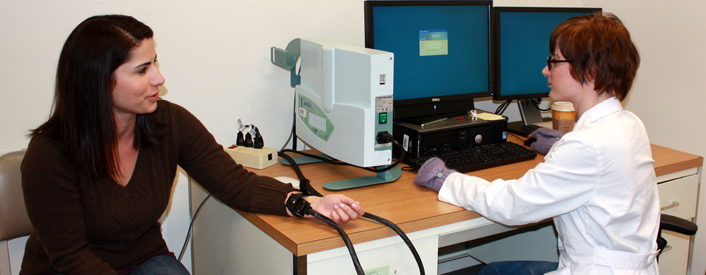About Us

The graduate program in Social, Personality, and Health (SPH) Psychology prepares students for careers in social psychology, personality psychology, health psychology, and the interface among these disciplines. Thematic areas of concentration that cut across faculty members and students in the SPH area include interpersonal relations, close relationships, and social networks; the self, identity, understanding, and belief; social cognition and social norms; antecedents and consequences of personality; scale development for social psychological and personality constructs; health behaviors including alcohol and substance use; disease risk and longevity; self-regulation and motivation; and sociocultural contexts and adverse experiences. The SPH area also has a strong focus on advanced quantitative methods including item response theory and psychometrics; structural equation and multilevel modeling; macro- and micro-longitudinal analyses; language analysis; and other data science techniques.The program generally emphasizes the application of social, personality, and health psychology theories, methods, and concepts to research in real life settings and important social issues.
Faculty members in the program have continually received support from both federal (e.g., NIH) and local agencies. Graduate students are prepared for positions in university departments, medical schools, state- and federally-funded research organizations, and non-profits. Graduates of the doctoral program have received appointments at a number of universities such as: California State University at Sacramento, Duke University, East Carolina University, Michigan State University, North Dakota State University, Stanford University, State University of New York at Buffalo, University of Alabama, University of Arizona, University of California at Santa Cruz, University of Washington, University of Wisconsin, and Wayne State University. Graduates have also gone on to work for medical schools such as Baylor College of Medicine and Mount Sinai School of Medicine, as well as state- and federally-funded organizations and non-profits such as the National Institutes of Health, Texas Department of Human Resources, the Texas Youth Commission, and the Educational Testing Service.
The social, personality, and health psychology curriculum is directed at developing student strengths in quantitative methods and theoretical, conceptual, and biological perspectives that are central to advanced training in social, personality, and health psychology. Students in the program participate in active research programs under the mentorship of various members of the psychology faculty, but they are also encouraged to engage in self-initiated research endeavors. There is also opportunity for inter-disciplinary research, allowing for a breadth of research experiences. Strong departmental programs in industrial-organizational; developmental, cognitive, and behavioral neuroscience; and clinical psychology provide excellent opportunities to augment and diversify the training in the social, personality, and health psychology program, as does access to courses offered in the Texas Medical Center (e.g., epidemiology, public health) and other universities in the Houston metropolitan area.
The core classes for SPH students include: Foundations of Social Psychology, Foundations of Personality, Foundations of Health, The Self, Social Cognition, Personal Relationships, Methods in Social Psychology, and Grant writing/Proposal development. At least two semesters of statistics, as well as a minor (9 units) are also required. Recent SPH graduate students have minored in Marketing, Political Science, or Quantitative Methods. All students will complete a masters thesis and successfully pass comprehensive examinations before the culmination of their experience with a dissertation. Students generally take 4-5 years to complete the program.